Index relies entirely on the support of donors and readers to do its work.
Help us keep amplifying censored voices today.
The artist Ai Weiwei’s outspoken views are gaining currency. Simon Kirby reflects on a change of mood in China as people lose faith in the Party
In June 2011, Ai Weiwei was released from detention to a form of home surveillance. He is confined to the city of Beijing and must inform the authorities of his movements. He may not make public statements nor comment on his detention and the terms of his release (a condition he has already breached); further investigations are pending and a prosecution may be pursued within a year. It is still far from clear what the implications are for Ai as a private individual, let alone for his capacity to continue to work as an artist. Just as he was never formally arrested neither has he been fully freed.
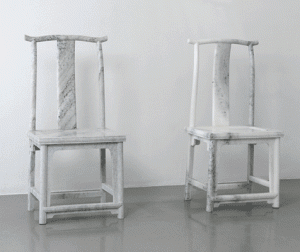 This shabby story takes place against a backdrop of heightened political sensitivity in China as the country braces itself for transition to a new, as yet unannounced, group of top leaders. This is scheduled to take place next year in the Great Hall of the People during the 18th National Congress of the Communist Party. The Congress will certainly be a rigid spectacle of national purpose and will make numbing television viewing. Not least because it will be impossible not to speculate on the nature of the Byzantine succession struggle which is currently taking place behind firmly locked doors.
This shabby story takes place against a backdrop of heightened political sensitivity in China as the country braces itself for transition to a new, as yet unannounced, group of top leaders. This is scheduled to take place next year in the Great Hall of the People during the 18th National Congress of the Communist Party. The Congress will certainly be a rigid spectacle of national purpose and will make numbing television viewing. Not least because it will be impossible not to speculate on the nature of the Byzantine succession struggle which is currently taking place behind firmly locked doors.
The detention of Ai Weiwei was based on intimidation rather than legal process — a pattern that is well established in China. In effect, he was kidnapped by the state and never informed which organ of the machinery was holding him, nor was he charged with a specific crime. Rather, his indictment was based on “confessions”. Even his release was justified on the spurious grounds of cooperative behaviour, willingness to make amends and poor physical health. As the threat of re-opening the case against him still looms, he is now being blackmailed into falling into line.
A few weeks after Ai Weiwei was released I had lunch with him. He talked frankly about the contradictions of his detention and the absurdity of his current position. He clearly intends to continue working and his remarkable personal charisma is undimmed. Yet he is, in my view, a person who is also deeply disturbed by what is happening to him.
Throughout the 90s, Chinese state-controlled capitalism ushered in a remarkable economic boom from which the fledgling contemporary art scene benefited. Artists, as potentially problematic figures, were heavily co-opted with a variety of sticks and carrots — there were rich rewards to be had and the freedom to continue making, exhibiting and travelling was granted to artists in exchange for creating non-critical work. In many cases, artists were understandably tempted to comply. Ever since the fearful events of the Tiananmen massacre on 4 June 1989, there has been an enforced accommodation between the government and society. I dubbed this the “Tiananmen contract” in an article for Index on Censorship that was published in 2008, ahead of the Chinese Olympics. The deal is that the Communist Party would steer the people towards individual prosperity and the country to greatness, through ensuring stability. In return, the primacy of the Party could never be questioned. Three years ago, the contract was widely supported — the level of basic freedom was greater than it had been in 20 years and living standards were rising. There was also pride at China’s leading role on the world stage. Today, I believe this consensus is much more fragile.
 The daily reality for Chinese citizens is that living costs are rising fast and incomes are not keeping up. Working conditions for white collar workers can be demoralising, while those for migrant manual workers, who continue to have even basic rights denied them, are often shockingly exploitative. Commuting in the new, high-rise cities can be exhausting and alienating. People are deeply sceptical about the capacity of the state to protect them from (often deliberately) contaminated food and a toxic living environment, criminal scams, corruption in the medical profession and corporate exploitation of consumers. The Party is widely understood to be at the centre of many of these scandals and is often seen to be protecting wrongdoers. Most flagrantly, the new super-rich live effectively beyond the reach of the law, while ordinary people can in no way count on basic social justice for themselves and their families.
The daily reality for Chinese citizens is that living costs are rising fast and incomes are not keeping up. Working conditions for white collar workers can be demoralising, while those for migrant manual workers, who continue to have even basic rights denied them, are often shockingly exploitative. Commuting in the new, high-rise cities can be exhausting and alienating. People are deeply sceptical about the capacity of the state to protect them from (often deliberately) contaminated food and a toxic living environment, criminal scams, corruption in the medical profession and corporate exploitation of consumers. The Party is widely understood to be at the centre of many of these scandals and is often seen to be protecting wrongdoers. Most flagrantly, the new super-rich live effectively beyond the reach of the law, while ordinary people can in no way count on basic social justice for themselves and their families.
There are attempts to address these problems through draconian anticorruption campaigns which make examples of officials accused of vice and graft. There are also strenuous efforts to reform social and fiscal legislation and to professionalise the legal system. This year’s 90th anniversary celebrations of the founding of the Chinese Communist Party saw an outpouring of congratulatory media stories featuring joyful ethnic minorities, good comrades and citizens and glorious historical deeds. Meanwhile Tiananmen Square, which is the heart of the great people’s revolution, was firmly sealed and off limits.
In March, I had dinner in a noisy Korean barbecue restaurant in Beijing with a favourite Chinese artist. Only 32 years old, he already enjoys a successful international career, is profoundly patriotic and the holder of an important teaching post. During the evening, my friend passionately expounded an opinion in full earshot of fellow diners and waiting staff that would have made me extremely uncomfortable even five years ago. Namely, that the Chinese Communist Party in 2011 is more fundamentally corrupt than even Chiang Kai-shek’s Kuomintang (KMT or Nationalist Party) of the 40s. The official history, tirelessly propagated in films and TV dramas, is that that the nationalist administration had degenerated into a kind of murderous gangsterism before the 1949 revolution. Yet my artist friend argued that pre-revolutionary society in many ways remained, for all its faults, a pluralistic one: an imperfect democracy. There was at least formal acknowledgment of the independence of the judiciary and channels to seek redress from injustice. The Communist Party of the 21st century, on the other hand, retains its monopoly on power through intimidation and force. It is deeply complicit in land grabs, forced evictions, endemic bribery and corruption. It even facilitates the enrichment of favoured businesses through official contracts and privileged access to resources and markets.
The legal system today, my friend told me, is explicitly in place in order to serve the interests of the Party above anything else. Citizens who attempt to petition the government to redress flagrant social wrongs can expect to be met at best with official obstruction. In many documented cases they will encounter thuggish intimidation and violence. This viewpoint is not unusual. In a way that is entirely characteristic of China, I then went on to hear the same, previously unimaginable, opinion expressed by three other, unrelated people within the course of as many weeks. If during the course of conversation with people in China, one digs just a little, it’s possible to encounter a profound and worrying cynicism in the integrity of the Chinese state.
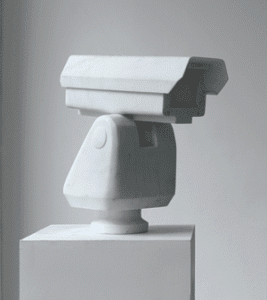 It seems that suddenly these views are being expressed loudly and in public. Ai Weiwei, on the other hand, has been consistently and persistently making his views known. His father, Ai Qing, was one of China’s most eminent poets, but was a political prisoner for 16 years in the western desert region of Xinjiang. This is where Ai Weiwei spent his entire childhood and early adolescence. When Ai Weiwei returned to China in 1993 after ten years in the United States, his rehabilitated father advised him on his responsibility as a Chinese citizen to speak out, reportedly saying, “You are at home here, there’s no need to be polite.”
It seems that suddenly these views are being expressed loudly and in public. Ai Weiwei, on the other hand, has been consistently and persistently making his views known. His father, Ai Qing, was one of China’s most eminent poets, but was a political prisoner for 16 years in the western desert region of Xinjiang. This is where Ai Weiwei spent his entire childhood and early adolescence. When Ai Weiwei returned to China in 1993 after ten years in the United States, his rehabilitated father advised him on his responsibility as a Chinese citizen to speak out, reportedly saying, “You are at home here, there’s no need to be polite.”
An intriguingly enigmatic artist, Ai Weiwei’s public personality is also complex and elusive. The true Ai Weiwei may well be a nuanced combination of the many faults of which his detractors accuse him. However, it has also now become clear, even to his harshest critics, that this artist has courageously maintained a highly principled position for which he is now paying a heavy price. It is my observation that many others are beginning to come round to his point of view.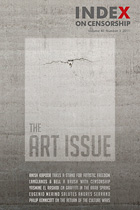
This article appears in the “Art Issue” of Index on Censorship. Click on here for subscription options and more.
Simon Kirby is the director of Chambers Fine Art in Beijing
The evictions of Occupy London sites at St Paul’s Cathedral and the School of Ideas show a systemic contempt for the right to protest if that dissent threatens profit.
The 80 people living at the St Paul’s site and the 40-50 living at an abandoned school building near Old Street were greeted in the small hours of the morning with police vans, bailiffs, riot cops and a gaggle of press photographers. Supporters received text messages and tweets from people on site and those who could make the post-midnight journey came down to stand in support or rubberneck over the police lines set up around it. Occupy’s tech team began a long night of tweeting and livestream broadcasts. As the sun rose over a hazy London, the bulldozers arrived at the School of Ideas and before most people had finished their breakfasts and set off on their morning commutes, the abandoned Islington school was no more. And St Paul’s was, for the first time since 15 October 2011, clear of tents and banners.
After a decision from the Court of Appeal was passed to prevent an appeal for protesters to remain encamped on the St Paul’s site, life there began to show signs of strain. The weekend before the eviction, most of the residential tents were still in place but some of the larger structures at the side of the cathedral were taken down or relocated. People were pre-empting a “dawn raid” — as in the way the Parliament Square anti-war encampments were evicted. It was no longer a case of if, but when.
So when the floodlights arrived just after midnight with its chorus of riot police and neon-vested bailiffs, they were expected. Some people chose to wear their tents instead of have them destroyed, and others built a structure out of pallets and stood on it in token resistance to the eviction. Police arrested 23 protesters but for the most part, people decamped to the remaining Occupy site at Finsbury Square and began the process of asking “what now?”
The High Court’s decision in favour of the City of London Corporation was an attempt to put the nail in the coffin of the Occupy movement’s protest and dissent. The swathe of evictions across all Occupy sites is the state’s way of trying to bury it. Ahead of the London 2012 Olympic Games, the erection of tents and the possession of sleeping equipment on Olympic sites were declared unlawful. Reports that government ministers are drafting legislation loosely based on part 3 of the Police Reform and Social Responsibility Act 2011 and that they will invoke the London Olympic Games and Paralympic Games Act 2006 to protect Olympic branding and sponsors make this government’s position on what matters crystal clear. This is legislation for the short term that will carry the weight of precedent against your human right to protest in the long term. Do not mess with the money machine. You can have “peaceful protest” but the minute you start cutting near the bone, you will be stopped. Your free speech ends where the profit margin begins.
The bleary eyes of the occupiers are dead today. Their bodies are slumped in exhaustion on a muddy plot of land next to a car park and the Bloomberg building. But their heels are digging into the soil as they vow to carry on.
It matters little what you personally feel about the global Occupy Movement and London’s part in it. You could be devoted to it as a zeitgeist, you can maintain that occupation should be a political tactic used to achieve tangible change or you could say that the sight of riot police on the steps of St Paul’s cathedral at 2am was the most radical thing to come out of that plot of land. The truth is this — gambling by financial institutions around the world has crippled the many for the benefit of the few. The blind eye turned by governments to this wanton destruction of lives shows that our will as the people to form the basis of authority of government has been raped. We are no longer equal before the law.
Leah Borromeo says the 2012 games in London could damage free expression in the United Kingdon
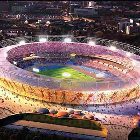
A series of Home Office proposals could ban protests during the London 2012 Olympic games. In reaction to the longevity and scale of recent Occupy London takeovers of public and private space at St Paul’s Cathedral, Finsbury Square and a former UBS bank, ministers are reported to be drafting legislation loosely based on part 3 of the Police Reform and Social Responsibility Act 2011 – paying particular note to restricting tents and “sleeping equipment” for up to 90 days around exclusion zones. Police and “authorised officers” will be allowed to disperse protests quickly. Presumably with “reasonable force”.
Don’t be too shocked or too quick to compare this to Beijing 2008. Then, the Beijing Organising Committee banned all foreign visitors and non-Beijing-resident Chinese from attending, watching or applying for the right to demonstrate in authorised protest zones. Athens had protest zones in 2004. So did the Salt Lake City Winter Games in 2002.
The reasoning behind these restrictions is always to “preserve the festivity” of the Olympic experience. And security. Always security. In London’s case, security means Britain apparently waives its own rights and customs to allow America to oversee its own security operations, laying on 21,000 private security contractors and enforcing the London Olympic Games and Paralympic Games Act 2006.
That allows police and “enforcement officers” the right of entry to private buildings suspected of contravening legislation on Olympic advertising. This includes: “advertising of a non-commercial nature” and “announcements or notices of any kind” paying particular attention to “the distribution or provision of documents or articles, the display or projection of words, images, lights or sounds, and things done with or in relation to material which has or may have purposes or uses other than as an advertisement”. In other words, protest.
Artist Peter Kennard, noted for overtly political art in a public context says: “The Secretary of State has regulations banning ‘advertising in the vicinity of the Olympics’. How big is a vicinity? Words fail me and because I make public art in the ‘vicinity’ of the Olympics it might be safer for me if both words and images continue to fail me until after the Olympics”.
A London swamped with police, security officers and spy drones might just dampen all the fun. Providing you sing along with the hymn sheet laid on by the Games’ sponsors and ignore the £9.3 billion price tag, you’ll be fine. But if you argue that a corporate agenda and exploitation is being sold under the auspices of uniting the world under sport and “generating jobs”, you might be in trouble.
The proposed legislation and the laws already in place only serve to secure the profits made by those with heavy financial stakes in the Olympic Games. These corporations read like an anti-capitalist wet dream: McDonalds, Coca-Cola, Dow, G4S, BP…. They may bring jobs to an area, but totally undermine the community-building that encourages grass roots businesses and the local relationships and interactions that stem from that.
It’s interesting to note that the Home Office sees protest as a threat. They’re not only worried about homegrown “domestic extremists” with a grudge against capitalism but international groups seeking to use the Olympics as a platform to air their grievances about authoritarian regimes around the world. Syria, China and Bahrain spring quickly to mind. So instead of giving an example of a functioning democracy where everyone gets a voice and can practise free speech, Britain hides dissent in an attic like it’s an invalid child.
The idea that ministers are considering bans on protest off the back of a global Occupy movement further legitimises the idea that these restrictions are directed at those who oppose one of the greatest and most murderous regimes of the world…capitalism.
So here we go. I hate the Olympics. Arrest me.
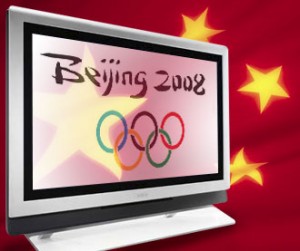 As the Games begin in Beijing, Index publishes a roundup of arrests, detentions and surveillance since January –– a reminder that China has yet to meet its Olympic challenge of harmony and openness.
As the Games begin in Beijing, Index publishes a roundup of arrests, detentions and surveillance since January –– a reminder that China has yet to meet its Olympic challenge of harmony and openness.